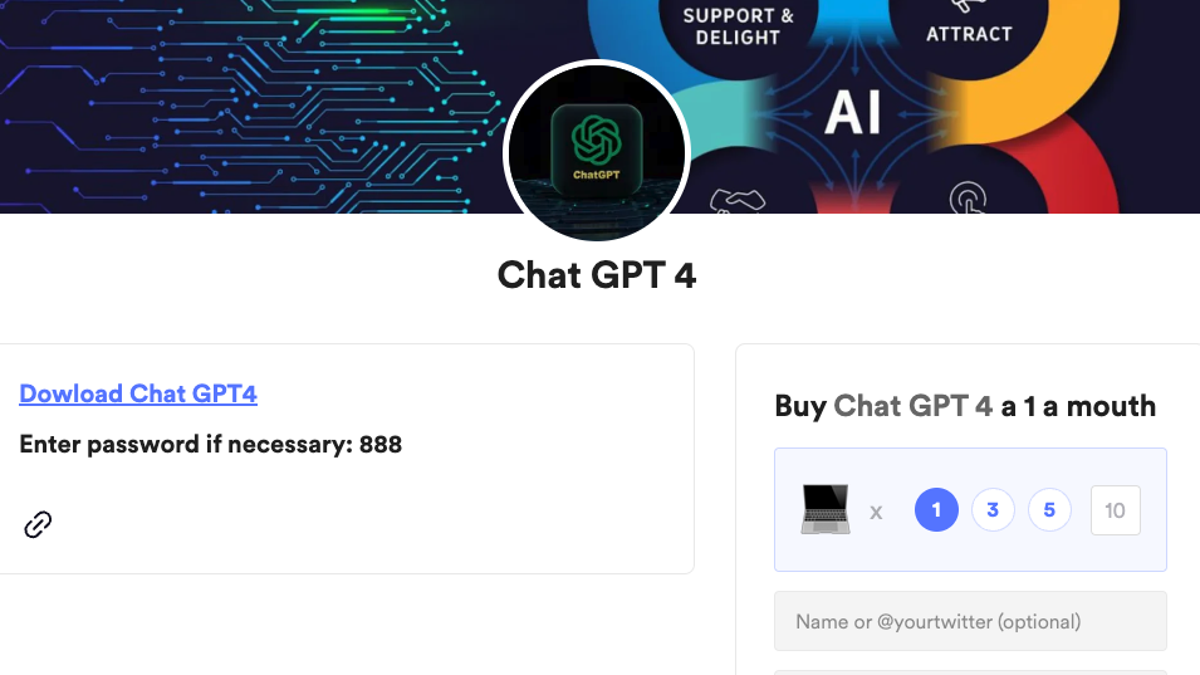Be Wary of ChatGPT Clones
ChatGPT has transformed the role of AI in our everyday lives. People are now regularly relying on AI to spiff up their résumé and write thank-you notes. With the popularity of ChatGPT, however, comes the almost inevitable influx of...

ChatGPT has transformed the role of AI in our everyday lives. People are now regularly relying on AI to spiff up their résumé and write thank-you notes. With the popularity of ChatGPT, however, comes the almost inevitable influx of scammers, as covered by Mashable. These scammers are making their own free AI programs for people who don’t want to pay the $20 a month for ChatGPT Plus—and targeting sensitive information and social media accounts in the process.
This is not to say that all ChatGPT-like tools are scams. There are a lot of third-party tools not made by OpenAI that are useful and safe. However, you should be careful about the tools you’re downloading and make sure you understand the risks before you download them.
How third-party AI ChatGPT-like tools can trick you
Back in May, Meta released a full report on how hackers are using browser extensions, ads, and various social media platforms to get people to download malware posing as ChatGPT (some actually having ChatGPT functionalities) to steal their cookies, saved usernames and passwords, and ultimately compromise their online personal accounts like Facebook, Gmail, and Outlook. Another report from cybersecurity firm Guardio Labs found a malicious Google Chrome extension that tricks people into thinking it’s an official ChatGPT extension and steals social media credentials.
The Meta report says over 1,000 unique ChatGPT-themed malicious URLs were found and blocked from their platform during their research. After being blocked, many of these hackers began targeting other smaller services, like Buy Me a Coffee—a service used by creators to accept support from their audiences —to trick people into downloading malware by gifting “Chat GPT 4,” which is neither the name of ChatGPT’s more powerful paid version, nor how it’s formatted.
How third-party AI ChatGPT-like tools harm you
Once you download a malicious ChatGPT dupe—say, a Google Chrome extension that searches any highlighted keyword on your browser using AI—you also download malware designed to steal stored passwords and cookie session information from your history and activity. Once bad actors have your login information, they can do whatever they want with your accounts.
Scammers are constantly updating their methods and tools to get around security protocols, so it’s hard to pinpoint which plugins or extensions are safe from those who are not. However, there are ways to still stay safe.
How to avoid dangerous ChatGPT-like tools
The AI landscape is so new that it’s hard to distinguish a new and promising AI third-party tool from a malicious one. The safest plan of action is to do your due diligence before downloading anything that is not from the official ChatGPT or Open AI website. (Bing’s take on ChatGPT is also a great free and safe alternative.)
However, if for some reason you are set on using an unofficial third-party plugin or extension, you should look closely at the developer’s web page and user reviews to check what other people’s experiences have been like. Open AI also has safe third-party plugins they support.
Just remember there is only one app for ChatGPT on iPhone and Android. If you find an ad, online search result, Facebook page, or website claiming to be official when it isn’t this app, it’s more than likely a scam.

 ShanonG
ShanonG 































